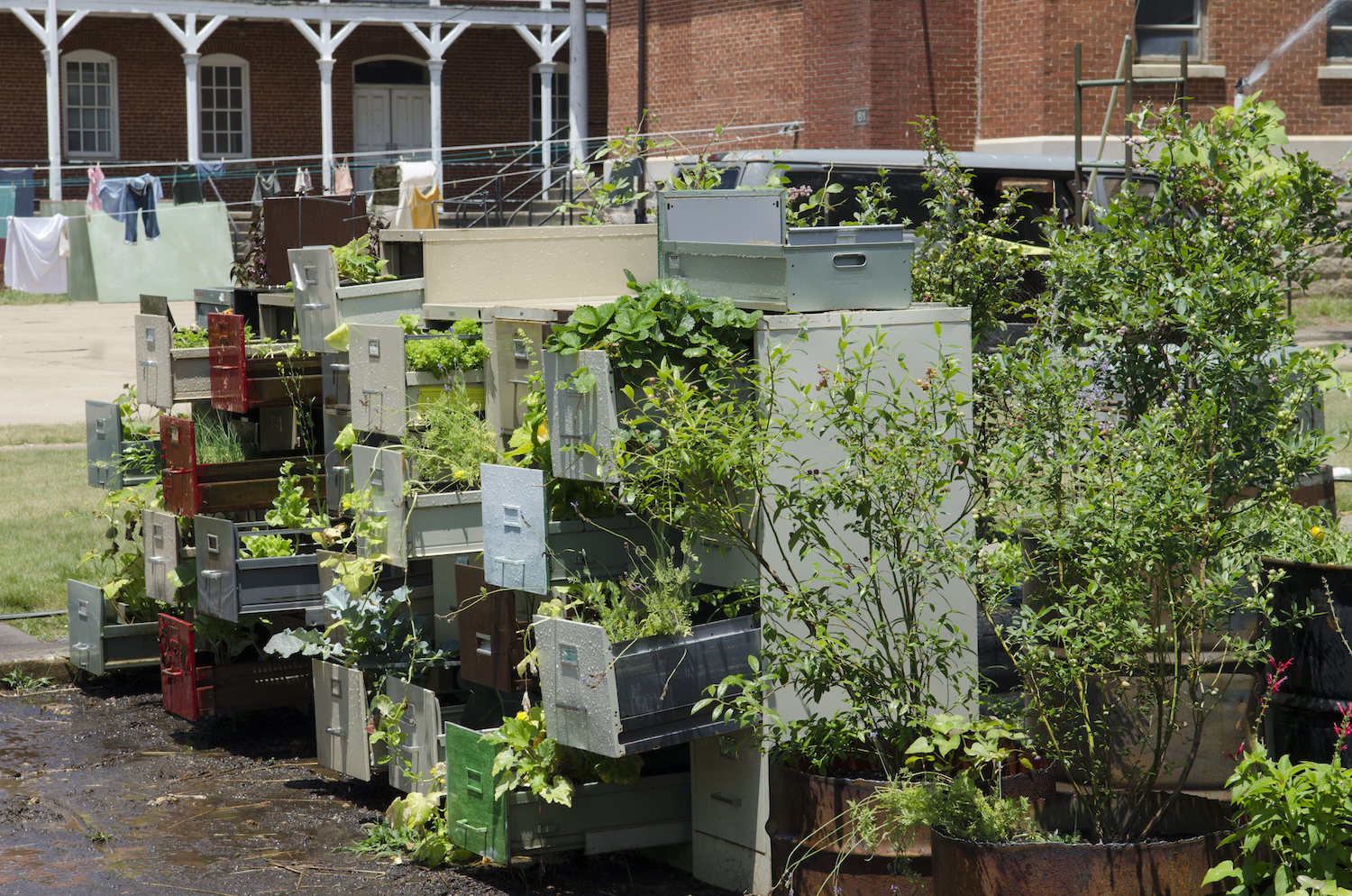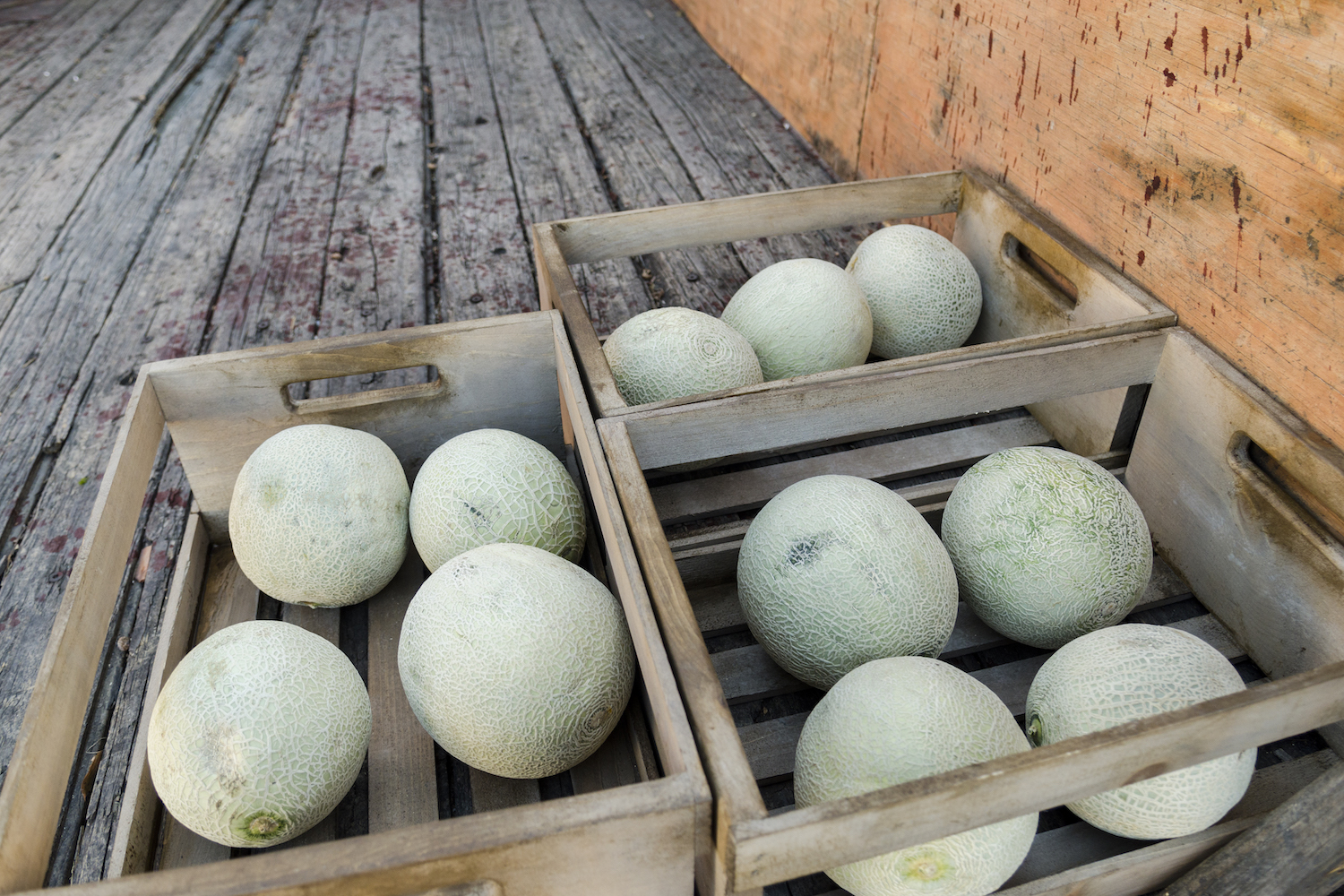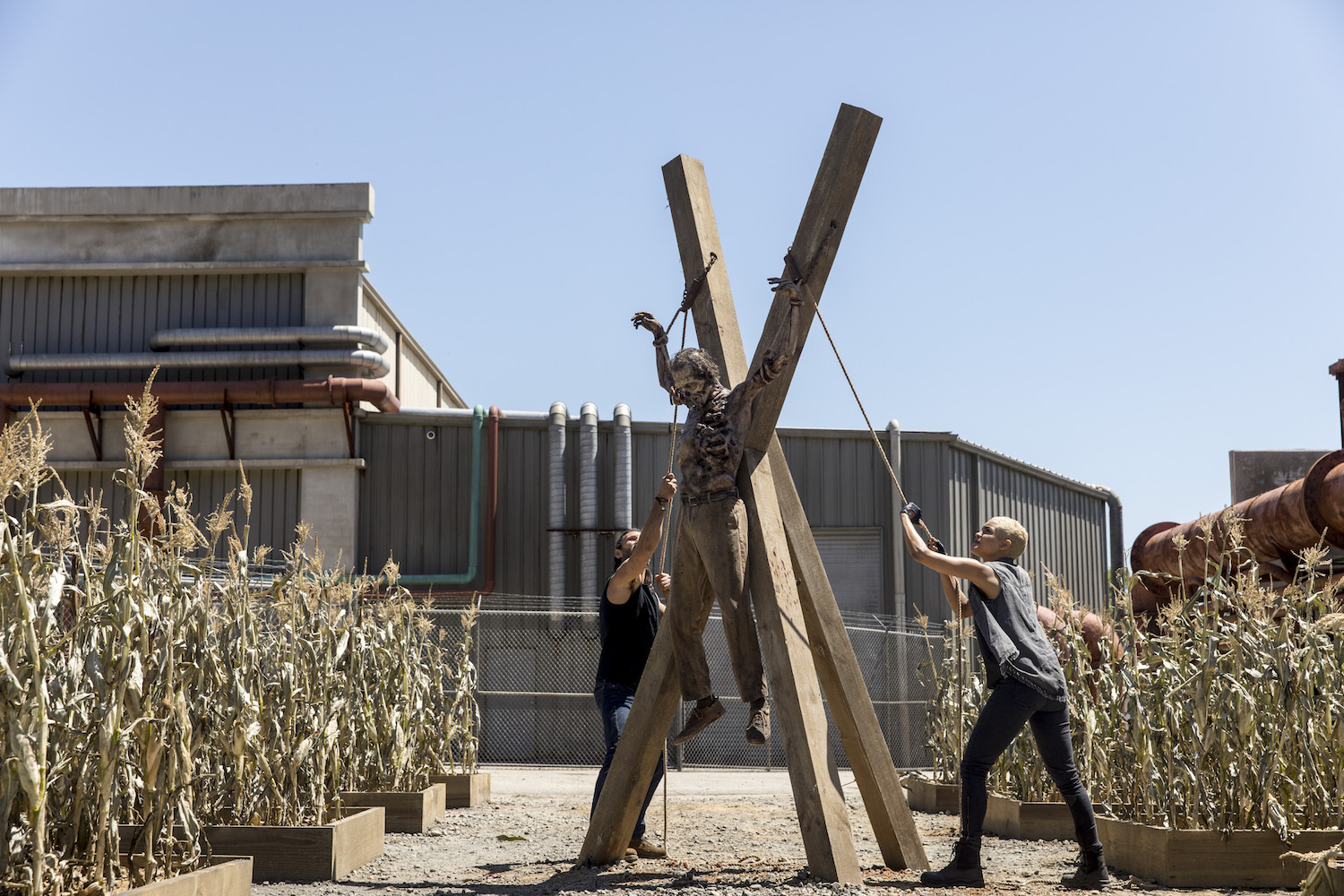How to Farm During a Zombie Apocalypse
Get the world’s most fascinating discoveries delivered straight to your inbox.
You are now subscribed
Your newsletter sign-up was successful
Want to add more newsletters?

Delivered Daily
Daily Newsletter
Sign up for the latest discoveries, groundbreaking research and fascinating breakthroughs that impact you and the wider world direct to your inbox.

Once a week
Life's Little Mysteries
Feed your curiosity with an exclusive mystery every week, solved with science and delivered direct to your inbox before it's seen anywhere else.

Once a week
How It Works
Sign up to our free science & technology newsletter for your weekly fix of fascinating articles, quick quizzes, amazing images, and more

Delivered daily
Space.com Newsletter
Breaking space news, the latest updates on rocket launches, skywatching events and more!

Once a month
Watch This Space
Sign up to our monthly entertainment newsletter to keep up with all our coverage of the latest sci-fi and space movies, tv shows, games and books.

Once a week
Night Sky This Week
Discover this week's must-see night sky events, moon phases, and stunning astrophotos. Sign up for our skywatching newsletter and explore the universe with us!
Join the club
Get full access to premium articles, exclusive features and a growing list of member rewards.
True, that's a dramatic and highly unlikely situation — but would you know where to start?
In AMC's "The Walking Dead" (which airs Sundays at 9 p.m. EST/8 p.m. CST), characters have survived years after the zombie apocalypse began and are now living in communities that demand a stable food supply. Farming is a major part of that, but with limited space and resources, the settlers have to figure out how to make the most of their efforts. [9 Reasons We Have an Undying Interest in the Undead]
Live Science spoke with Dan Kemper, an organic farmer and the field foreman at the Rodale Institute, a nonprofit organic farming research and education organization in Pennsylvania, to learn a few helpful tips for farming during an apocalypse, or anytime.
Focus on nutrition gold mines
"If you're in a situation where you didn't have any tractor equipment and were limited on space, you want to go for the nutrient-dense crops," Kemper said. "Things like potatoes, garlic, onions and sweet potatoes."
Kemper immediately rattled off those four crops for a few reasons. First, they're nutritious.
"Potatoes are super-packed with nutrients," Kemper said. A medium potato contains about 42 grams of vitamin C, according to the U.S. Department of Agriculture (USDA). They're also loaded with minerals, like calcium, magnesium, phosphorus and potassium.
Another upside to potatoes, Kemper thought of: "You can ferment them into booze and you can trade that." Indeed, participating in trade is key to building a successful civilization, as Live Science previously reported.
Get the world’s most fascinating discoveries delivered straight to your inbox.
Sweet potatoes are also nutritious and are chock-full of vitamin A in the form of beta-carotene. Vitamin A plays a role in healthy vision, skin and bones, and works as an antioxidant, which is a chemical that fights free radicals that may damage cells. Sweet potatoes are also relatively high in potassium, an important mineral for maintaining heart and muscle health.
Besides being flavorful and delicious, onions and garlic are two closely related veggies that have many layers of nutrition.
"Onions are super-healthy," Victoria Jarzabkowski, a nutritionist with the Fitness Institute of Texas at the University of Texas at Austin, previously told Live Science. "They are excellent sources of vitamin C, sulfuric compounds, flavonoids and phytochemicals."
Kemper said he chose garlic because it's rich in a sulfur-based chemical called allicin, which gets released when the garlic bulb is cut or crushed. Allicin is thought to work as an antioxidant, and there's some evidence that it supports immune system health, too. The allicin in garlic could help keep people from getting sick, Kemper said.
Grow more, water less
These four crops also don't need a lot of water. "I would assume all of the water would be for drinking, so the garlic, onion and potatoes don't need a ton of irrigation," Kemper said.
It would also be important to consider that few things grow in the winter. Even in Georgia, where the characters in "The Walking Dead" have set up their communities, the winters are cold enough to prohibit most crops from growing, and the settlers would need to live off stored food.
Fortunately, the crops Kemper suggested can be stored for a long time. "You can pretty much just throw them in a sack or bin out of the sun and out of the rain," Kemper said.
The winter would also allow time for the soil to recover between crops. In a normal setting, Kemper said, farmers let their fields rest over winter and plant what's called a cover crop. Cover crops, such as legumes or grasses, are grown primarily to maintain soil quality over the winter. "Then you could plant whatever you want in the spring," Kemper said.
Whatever crops were planted would need to be rotated each season to keep the soil healthy, Kemper added. Rotating crops prevents the soil from becoming depleted of the same nutrients over and over because different crops pull different nutrients from the soil.
"It's always better to rotate," Kemper said.
What about pests?
One of the issues farmers on "The Walking Dead" are facing this season is how to get rid of pests, particularly crows. There are many options to try, such as scarecrows or shiny ribbons.
But the sure-fire way to get rid of any vertebrate pests is to kill them, Kemper said. "It's the best thing to do." It's not glamorous but it saves your crops and provides more food, he said. Roasted crow, anyone?
But what about the pesky crop-eating bugs? Ideally, pesticides would be the easiest solution, but chemicals like that probably aren't available during a zombie apocalypse.
So, the crops might require individual, hands-on attention.
At the Rodale Institute, Kemper said that every now and then, rain washes away the organic-approved pesticides they have applied to the crops, so they have to manually clean the bugs off every plant one by one.
"We get buckets that are half full of water and bleach and we hand shake the plant to get the bugs off," he said. It's a tedious but effective method for keeping crops healthy.
Consider including livestock
Besides growing a few key crops, the apocalypse settlers might want to consider raising animals.
"Chickens are a great idea," Kemper said. "They're really quick to raise, and you can keep a few that lay eggs and keep the eggs."
Larger livestock might to be too challenging, he said. "Cows and pigs and goats will be a lot of work."
He suggested maybe start with one other livestock animal at a time and raise it for a season. Just one cow could provide enough food for everyone for a winter, he said. And, depending on the animal, its fat could be used to make soap — an important ingredient for keeping things sanitary and people healthy.
Space might also be limited, meaning not enough room for both livestock and crop fields. Kemper estimated that about three or four acres of crops would be needed to keep about a dozen people fed for a year, with a little extra to spare for emergencies. If that's the case, the hundred or so people in the communities of "The Walking Dead" can't depend solely on their small farms.
"They would need concentration on hunting and gathering still," Kemper said. "So, stay well-armed."
Catch "The Walking Dead," on Sundays at 9 p.m. EST/8 p.m. CST on AMC.
Originally published on Live Science.

Kimberly has a bachelor's degree in marine biology from Texas A&M University, a master's degree in biology from Southeastern Louisiana University and a graduate certificate in science communication from the University of California, Santa Cruz. She is a former reference editor for Live Science and Space.com. Her work has appeared in Inside Science, News from Science, the San Jose Mercury and others. Her favorite stories include those about animals and obscurities. A Texas native, Kim now lives in a California redwood forest.
 Live Science Plus
Live Science Plus













